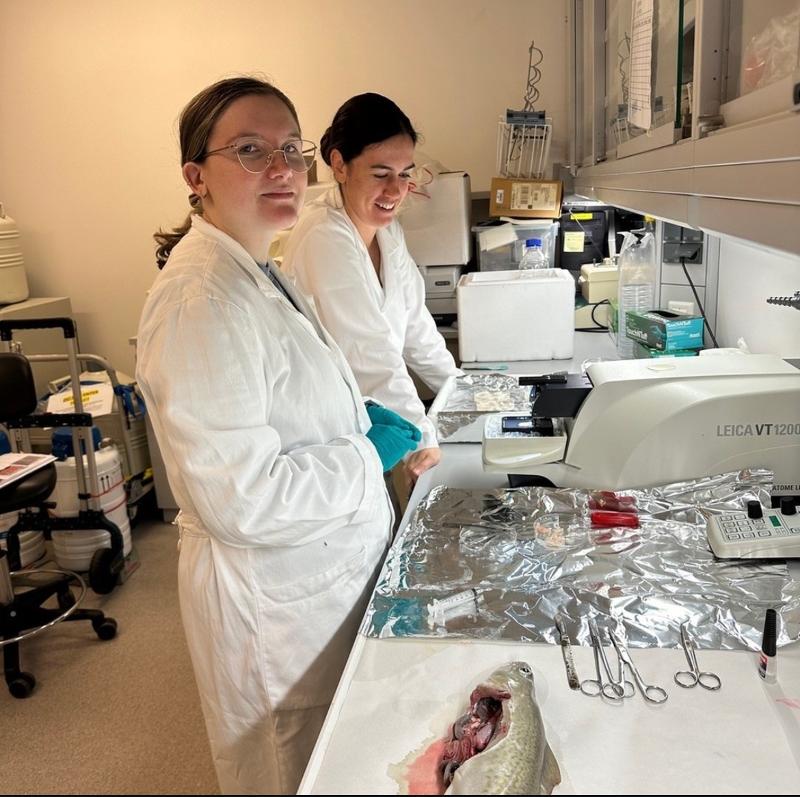Meet Malin and her research on crude oil fractions toxicity!
We are excited to introduce Malin as part of the ToxiGen team as she embarked on her master’s thesis this semester!

Her project focuses on assessing the toxicity of crude oil fractions found in crude oil. By using Atlantic cod (Gadus morhua) as a model species, Malin’s work will provide valuable insights into the effects of oil pollution on marine organisms—an issue of growing environmental concern.
Understanding oil toxicity in cod
Malin’s research specifically examines the impact of crude oil exposure on liver tissue, a vital organ for detoxification and metabolism. To achieve this, she uses precision-cut liver slices (PCLS)—a cutting-edge method that allows for controlled exposure studies in organ cultures. By working with liver samples from live cod maintained at ILAB (University of Bergen), Malin is able to closely mimic real-life physiological responses in liver tissues without the complexity of whole organisms.

Why this research matters
Oil pollution remains a major threat to marine ecosystems, particularly in the Arctic, where species like Atlantic and polar cod play a crucial role in the food web. By understanding how crude oil affects cod at a molecular level, Malin’s research will contribute to better risk assessments and inform environmental regulations.
We look forward to following Malin’s progress and sharing her findings!
Welcome aboard, Malin! 🚀🐟